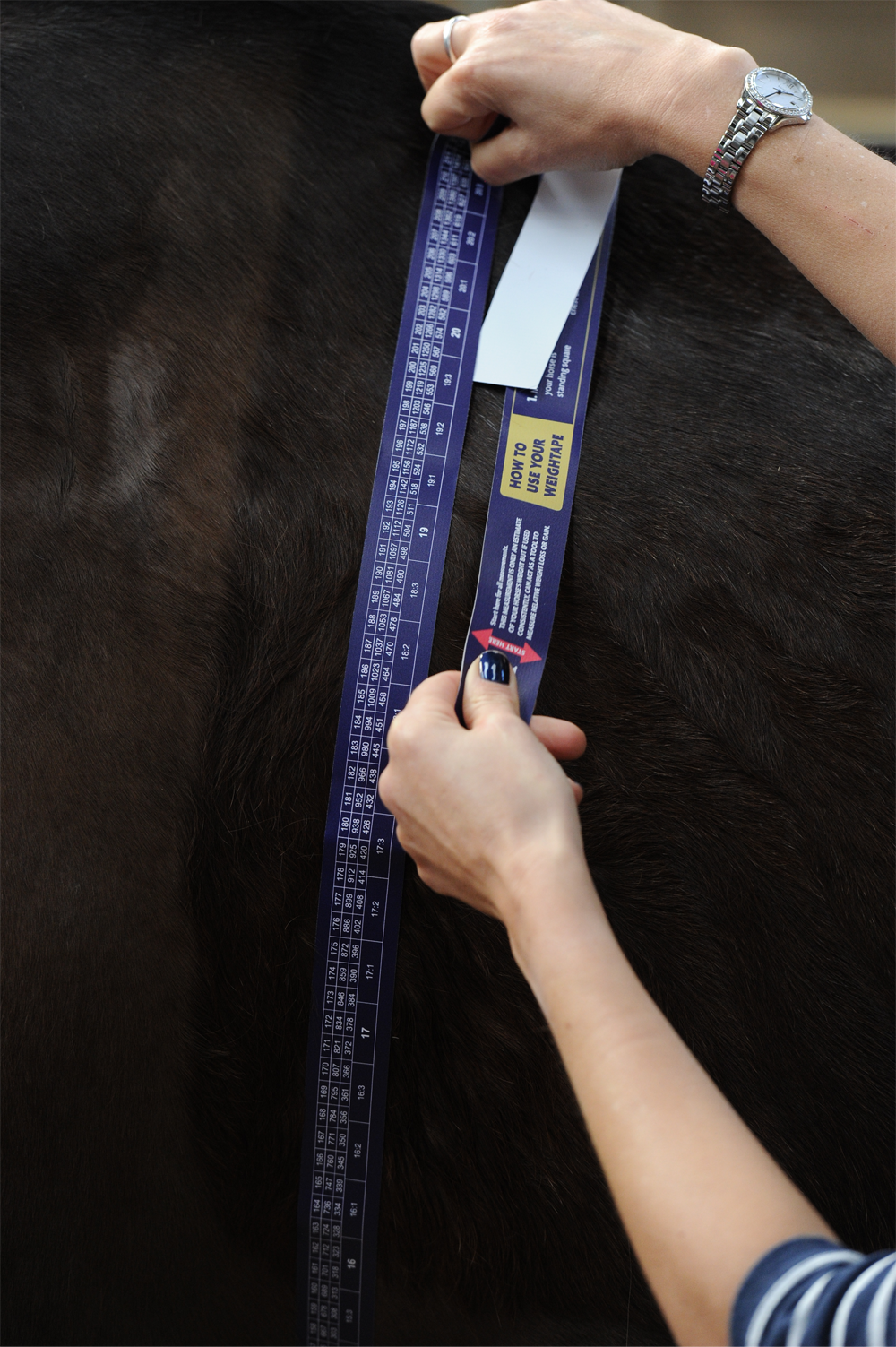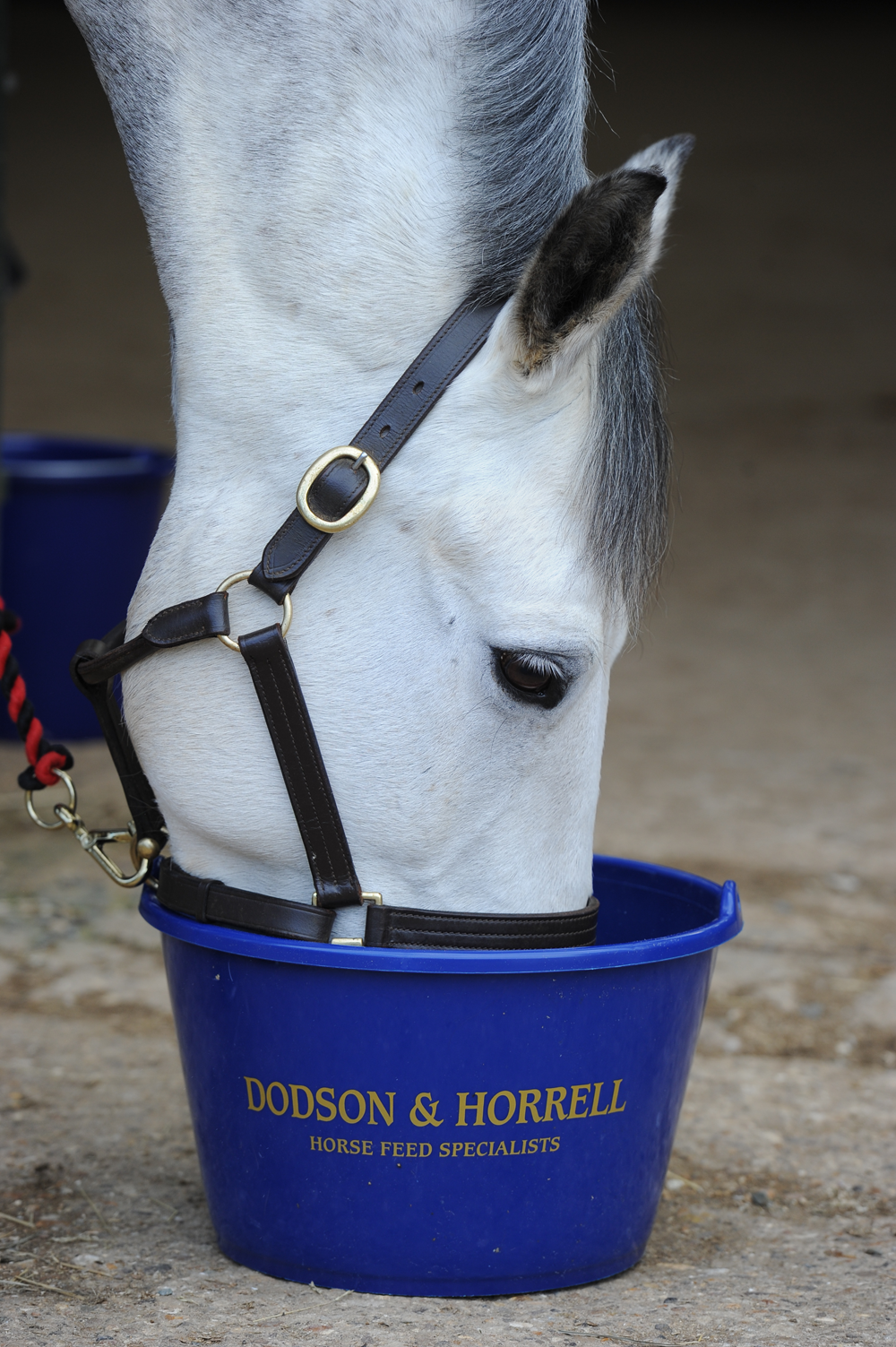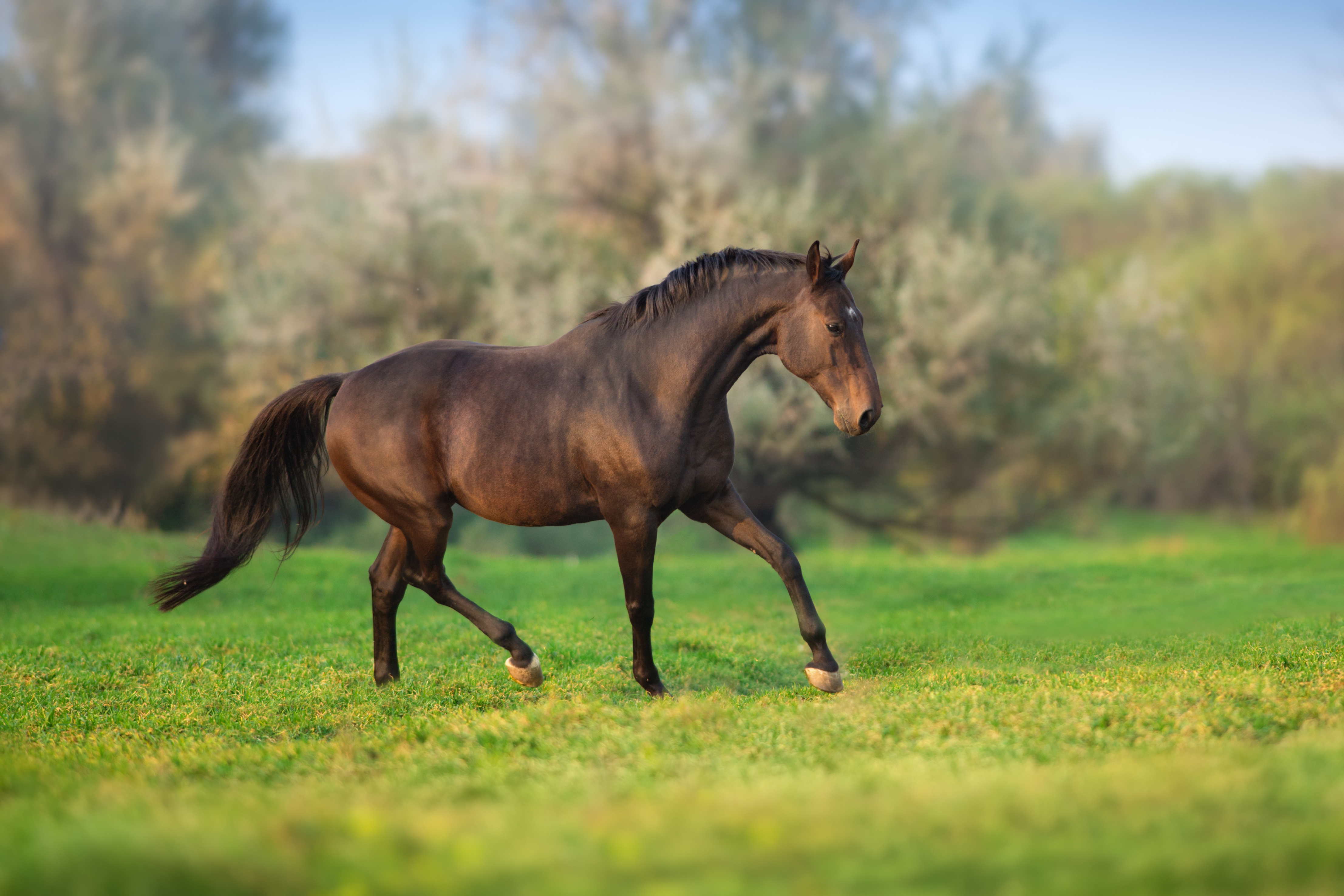With winter on the way, most horse owners will be considering upping their horse's feed as the quality (and quantity!) of forage starts to decrease. For those who own good-doers, or have underlying conditions including Laminitis or Equine Metabolic Syndrome, weight management is key to maintaining their health. Here is some information for you on managing overweight horses.
Steps To Take For Managing Overweight Horses
Before even looking at dietary changes, you need to identify if your horse is overweight, or just carrying a little excess which will help with their thermoregulation during winter. Here are some tips from our expert nutritionists on managing overweight horses:
- Every fortnight use a scientifically validated weigh tape to monitor your horses weight.
- Fat score your horse every fortnight (you should aim for a score of 2.5 or 3 out of 5).
- Look out for regional fat deposits - a cresty neck, fat pads behind the shoulder, or fat-filled eye sockets.
- Take photos regularly so you can see visual changes in your horse’s body condition.
If you find that your horse does have extra fat deposits, it is worth getting your vet to check that your horse doesn’t have any underlying nutritional disorders that require veterinary attention. Once you have received the all-clear, then you can start to address their dietary intake.

Setting A Goal
Once you have an idea of your horse’s weight, you can then estimate how much they need to lose. As a rule of thumb, we advise that an obese horse (more than 20% overweight) could healthily lose 1% of their bodyweight every two weeks.
When it comes to managing overweight horses, it is also important during the initial stages to assess their forage intake. Horses should consume at least 1.5% of their body weight in hay, haylage or grass. A good doer may well be able to maintain their weight from forage alone, so that is worth bearing in mind! You may find that restricting grazing isn’t enough for your horse to drop bodyweight, as horses may adapt to this by eating more in a shorter period. You could consider using a grazing muzzle which can lower grass intake by as much as 83%.
Other methods of reducing grass intake include strip grazing, cutting the grass, or increasing the number of horses in a given area. If your horse is very overweight turning them out on an all-weather surface with access to soaked hay or straw could be beneficial. Soaking the hay for 12 hours can reduce the water-soluble carbohydrate and calorie content of the forage.
Another option for managing overweight horses is to mix hay with lower-calorie oat or barley straw. Haylage is not normally recommended for overweight horses or ponies as it is typically more digestible than hay or straw however, there are now many lower sugar, higher fibre haylages available on the market. Monitoring the nutritional content of your horse's forage plays a large part in weight management for good doers.
Don’t Starve Your Horse
Remember the golden rule of feeding ‘feed little and often’. Horses have evolved to be trickle feeders, and spend most of their time eating. You will support their digestive health through spreading your horse’s meals and forage out as much as possible during the day rather than completely restricting them.
Ensure Optimal Nutrition
When managing overweight horses, it can be easy to strip everything back completely, but it is important to ensure they don’t become undernourished. Feeding a diet that is balanced in vitamins and minerals is key for overall health. Even just giving your horse a handful of Fibergy, alongside the recommended feeding rate of our Go Lite Balancer, would ensure that your horse is receiving everything it needs to maintain general health and wellbeing.
If you are completely taking away your horse’s hard feed (we would recommend speaking to one of our expert nutritionists first), our Equi-Bites may be the solution you are looking for. Perfect for managing overweight horses, each treat is low in starch, sugar & calories, whilst being fully supplemented with vitamins and minerals. They can be fed straight from the hand, and are perfect for horses prone to laminitis.

Keep Your Horse In Work
We have focused on nutrition so far when it comes to managing overweight horses, but exercise mustn’t be overlooked. Not only does it utilise energy that your horse is receiving through forage, but by building muscle your horse’s metabolism will be stimulated. Even just a 30-minute brisk walk to start with each day will help to slowly build your horse’s fitness up.
Winter is one of the hardest times to keep up a fitness routine with your horse, but remember even a short lunge is just as good. Having a realistic goal like a long hack with a friend at the weekend can really help motivate both you and your horse to stick to a fitness routine too!
So there you have it, our top tips on managing overweight horses coming into winter. Remember the less you can rug them the better too, as they can use their excess fat stores to keep them warm! If you would like tailored nutritional advice, our team would be more than happy to help. Give them a call on +44(0)1270 782223 or email helplineenquiries@dodsonandhorrell.com.



